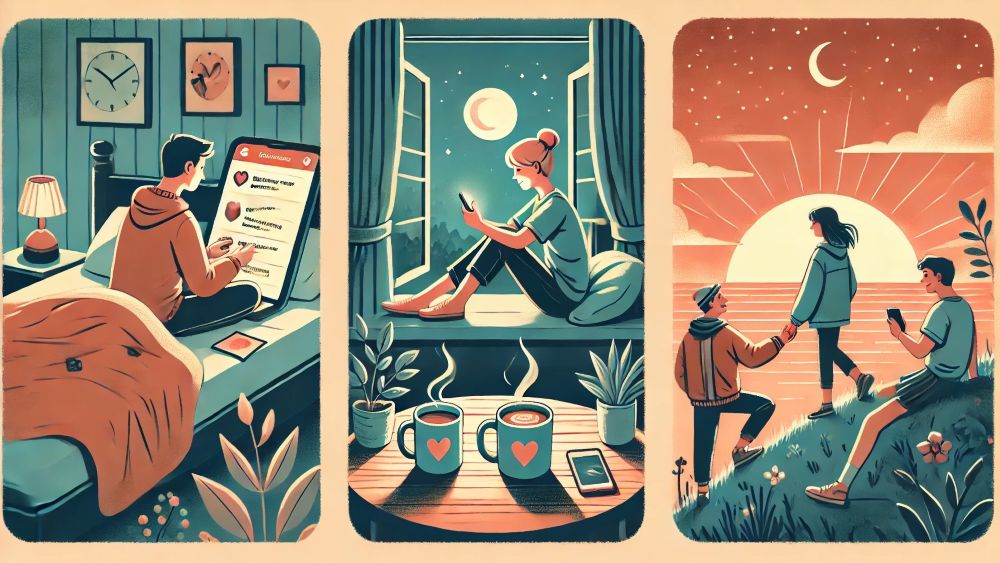Let’s say it out loud for once- Breakups are tough. Losing someone you cared about can bring a whirlwind of emotions: grief, self-doubt and a bit of everything in between. Feeling overwhelmed is, of course, common; but with time and the right approach, we can heal in a healthy way. Recognizing the emotional process involved and practicing self-care can help us move ahead on this path a bit more easily.
Understanding Heartache and the Emotional Stages of a Breakup
Science has proven that there’s real pain in breaking up. Research shows that when we experience a breakup, we activate the same brain regions associated with physical pain. Our brain is wired to feel a sense of loss of the presence of love, just like some of the withdrawal symptoms patients experience when going through rehab. This is why a heartbreak can feel exhausting, both mentally and physically. Having this knowledge can be reassuring, as it validates what we might be going through.
Stages of a breakup could be similar to the stages of grief. Denial kicks in initially, as one struggles to digest the reality. Then comes anger—whether it’s toward your ex, the overall situation, or even yourself. Bargaining might follow, contemplating all the things that, in an ideal world, could have been done better. And then there come waves of feeling depressed and lonely which feel all-consuming, crashing down like heavy weight and leaving one feeling hopeless. But eventually, there is acceptance, which can offer clarity and a way to move on. Recognizing all the stages will help us experience our emotions more readily without having to bottle them up.
Navigating Loss and Allowing Yourself to Feel
One of the hardest aspects of a breakup is losing that “someone special” in one’s life. It’s not just the person himself or herself, but the little things like the daily little interactions, shared jokes, and even their support- disappear and leave a void. It’s okay to feel sad about this loss. Instead of pushing these emotions away, one must give oneself the permission to feel them. Journaling, venting to a trusted friend, or even having a good cry to let it out can be incredibly helpful. The goal isn’t to dwell in sadness but to work through it in a way that allows us to move forward without carrying unprocessed pain.
Self-Care and Emotional Resilience
Self-care is an important element of moving on after a breakup. Emotional turmoil can easily overshadow personal care, but sometimes taking care of oneself allows for quicker healing. Exercise releases endorphins, which help uplift the mood. Picking up on the hobbies we once enjoyed to rediscover our likes and our identity outside of the previous relationship, could be a great start. One can practice mindfulness, meditation, and deep-breathing exercises to de-stress and combat the negative thoughts. Feeding our body with healthy foods and giving the body enough rest by sleeping well, are a must as well. Being kind to ourselves at this time may seem rather simplistic, but it has the power to guide us on the path to resilience. Heartbreak can momentarily feel like the end of the world, but if we keep taking care of ourselves consistently, we are sure to regain that strength and confidence.
Leaning on a Support System and Seeking Professional Help
Breakups may feel lonely, but there is no need to go through them all alone. Engaging with family, friends, or other support groups is beneficial in this journey of healing. Talking with someone who understands can really help. If the breakup or separation feels like it’s affecting one’s mental health and the day-to-day functioning abilities, it can be a really good idea to get professional help. A therapist can surely help us process our feelings without internalizing them, giving us the essential tools to cope in a healthy way.
Taking Time to Heal and Moving Forward
In the midst of mourning the end of a significant relationship, it is tempting to dive into a new relationship to escape the feeling of sorrow. Anyone who chooses this route may set up a cycle of new unhealthy patterns of living and in fact suffer more heartache during the journey. Rather, it is important to focus on self-renewal, i.e. setting clear goals for oneself, re-establishing interests, and digging deeper to find out what compels one to want a partner. Afterall, moving on doesn’t mean forgetting; it means learning to live without a particular person while cherishing the good memories of what once was.
This means fostering family, friendships, and love for oneself through this gradual healing process. Nurturing such positive relationships makes accepting the end of another one more bearable. Some day, we are bound to realize that we’ve not only moved on but emerged a stronger, wiser, more balanced and a more self-aware version of ourselves. Healing sure takes time; it won’t happen in the blink of an eye, but it is absolutely crucial to keep reminding ourselves that this feeling is not permanent, but only a negative phase. Eventually, we are meant to heal completely and that happiness of freedom is going to feel incredible!
Conclusion
Breakups, as painful as they can be, are not the end of the story- they are simply a chapter in our journey of growth and self-discovery. Heart-wrenching as it may be, going through the emotional process and prioritizing self-care while leaning on a support system could help ease our healing journey. We must allow ourselves the time to grieve, and learn and rebuild without being in a hurry. Therefore, moving forward is not letting go of what was but rediscovering the self, the strength, and the capacity to love: others and, perhaps more vitally, ourselves. Healing will take time, yet eventually it will bring accessibility, clarity, and strength to prove that a pretty future lies ahead after heartbreak.


February 16, 2025 @ 10:21 am
Loved it. To the point, realistic and uplifting at the same time